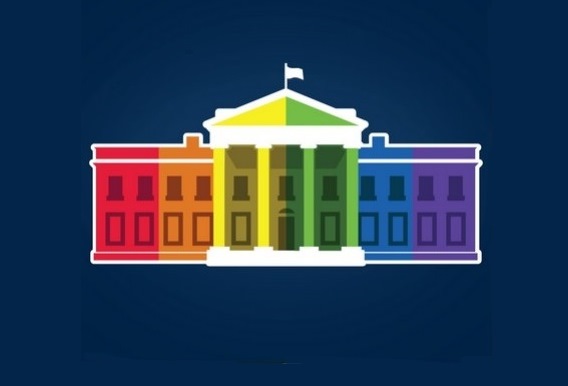Pride Report: Rainbows Over Madison Avenue May Lead to Pots of Gold

In their never-ending efforts to sell, sell, sell, advertisers long have found inspiration in the calendar, borrowing interest from holidays such as Valentine's Day, St. Patrick's Day, the Fourth of July, Halloween and, of course, Christmas. In recent years, reflecting the increasing diversity of the consumers they seek to reach, advertisers have added Dr. King's Birthday and Cinco de Mayo.
Another diversity-driven newcomer to that calendar of commerce is the month of June, known as Pride Month to members of the LGBT (lesbian, gay, bisexual and transgender) community. Scores of mainstream advertisers are now taking advantage of the four weeks of parades, parties and other events to express their support of and solidarity with Americans who are LGBT -- and, not so incidentally, pitch products.
Among the blue-chip brands wrapping themselves in rainbows are ABC Family, Chevrolet, Chobani, Coca-Cola, Equinox,Expedia,Google Android,Honey Maid,Maytag,Sabra,Target,Tylenol,W HotelsandWells Fargo.
It's easy to be cynical about those commercials, print ads, videos and posts on social media. Adidas, Converse and Nike are peddling collections of Pride merchandise such as shoes, T-shirts and caps, as is Target. The Chobani commercial is gimmicky, opening with a beautiful young woman in bed and waiting until the last moments to reveal that her bedmate is -- who'd a thunk it? -- another beautiful young woman; it's as if the only reason they're lesbians is to provide a surprise ending for the ad.
Still, it's early days for aiming ads at the LGBT market; perhaps Madison Avenue ought to be graded on a curve for a while. That's especially true for brands that are not only targeting LGBT consumers in media directed at them -- for instance, the Logo cable channel, magazines like the Advocate and Out and websites such as Towleroad and the Gaily Grind -- but also are featuring LGBT consumers in ads that run in media meant for the general market.
That mainstreaming of LGBT consumers is relatively new, a stark departure from the decades when most major advertisers (and their agencies) avoided any association with the LGBT market for fear of backlash from religious conservatives in the form of boycotts and protests. Despite data indicating that no right-wing boycott ever materially affected sales of any brand, the complaints were typically followed by craven kowtowing. The relatively few brands in those days that courted LGBT consumers were confined to categories where research indicated they outspent the general market: alcoholic beverages, led by Absolut; apparel, retail and travel.
It's no coincidence that mainstream advertisers' sea change in attitudes toward the LGBT market began after polls started showing that more than a majority of the public was in favor of gay marriage. Just as there's an old saying in political circles that the Supreme Court follows the election returns, it's also true that most of the denizens of Madison Avenue who hawk products in such prosaic categories as packaged foods are loath to get too far ahead of public opinion.
While pushing the envelope can pay off for products that hope to be perceived as hip or trendy, social platforms have made it easy for fans of mainstream brands who regard an ad as stepping over a line to share that opinion immediately. But underscoring how times have changed, when haters complain these days, brands usually brush them off or proclaim full support for LGBT consumers.
The LGBT audience couldn't be blamed for dismissing the newly-arriving brands as Johnny-come-latelies to the Pride parade, wondering, "What took you so long?" But most advertisers climbing aboard the bandwagon are being welcomed cordially and, often, enthusiastically; that's particularly the case for iconic mega-brands including Chevy and Coke that are mass-market mainstays and as such were labeled long shots to ever reach out to the LGBT market. A key reason for those reactions is that in a capitalist, consumerist society like the United States, many people believe that being marketed to represents being included, accepted or even embraced.
There are, it needs to be said, LGBT activists with second thoughts about the trend, taking a dim view of equality through commercialism or skeptical about the credentials of advertisers that suddenly are lusting after what the British call the pink dollar. Those activists would much rather advertisers adopt pro-LGBT corporate policies than run ads depicting a same-sex wedding or sell Pride T-shirts. In response, a growing number of advertisers targeting the market are advocating for issues important to LGBT consumers and discussing how they treat their own LGBT employees.
Sometimes, progress can come in a commercial instead of a courtroom or a legislative chamber. Happy Pride!
The opinions and points of view expressed in this commentary are exclusively the views of the author and do not necessarily represent the views of MediaVillage management or associated bloggers.


